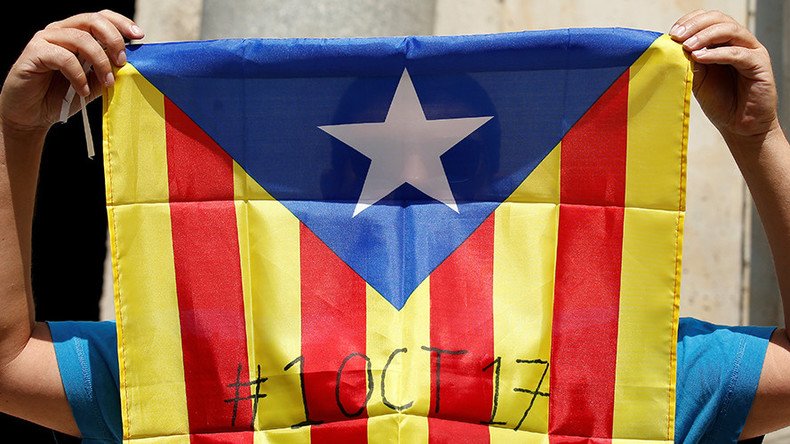Catalonia sets date for landmark vote on independence from Spain

The autonomous region of Catalonia will have the decisive referendum on secession from Spain on October 1, the regional government announced on Friday. The move comes after a months-long standoff with Madrid, which decries the vote as illegal.
The president of the Catalan government, Carles Puigdemont, said that voters in the upcoming referendum would be asked the sole question: “Do you want Catalonia to be an independent state in the form of a republic?”
Puigdemont explained that previous attempts to negotiate a date and the content of the referendum question with Madrid came to no result, prompting Catalonia to proceed unilaterally.
"We have always made very diverse offers and all of them have been rejected without any exception," Puigdemont said.
Puigdemont’s secessionist government insists that the populous industrialized region of Spain - which has its capital in Barcelona - has political, economic and cultural rights to self-determination. His predecessor, Artur Mas, was barred from public office for two years in mid-March for staging an informal referendum on secession back in 2014.
The 2014 independence referendum was set up in Catalonia despite the Spanish Constitution Court declaring it illegal.
During the mock vote, 80 percent of voters supported independence from Madrid, although less than half of the region’s 5.4 million population took part.
Massive protests then took place in Barcelona during the court proceedings involving Mas, with tens of thousands of people taking to the streets to support the ex-president and again demanding independence.
The central government is expected to throw all its weight behind preventing the planned independence vote from taking place.
Madrid may invoke Article 155 of the Spanish constitution, empowering the government to intervene in Catalonia’s regional affairs, and may compel the autonomous administration to scrap the plebiscite.
Such a move, widely seen as a last resort, could involve the closure of schools and public buildings used as polling stations, or the deployment of police to enforce the nationwide legislation. However, this may provoke additional tensions in a region tetchy about any pressure from Madrid.
Last week, the Council of Europe’s Venice Commission wrote to the Puigdemont government, urging him to carry out the referendum “in agreement with the Spanish authorities … and in full compliance with the constitution and the applicable legislation,” Catalan News Agency reported.
Although the secessionist government appears to have gained more public support over the past few years, there is no big margin between the ‘Yes’ and ‘No’ camps. According to a poll conducted at the end of March, 48.5 percent of Catalans oppose splitting from Spain, while 44.3 percent support breaking away, El Pais newspaper reported.













